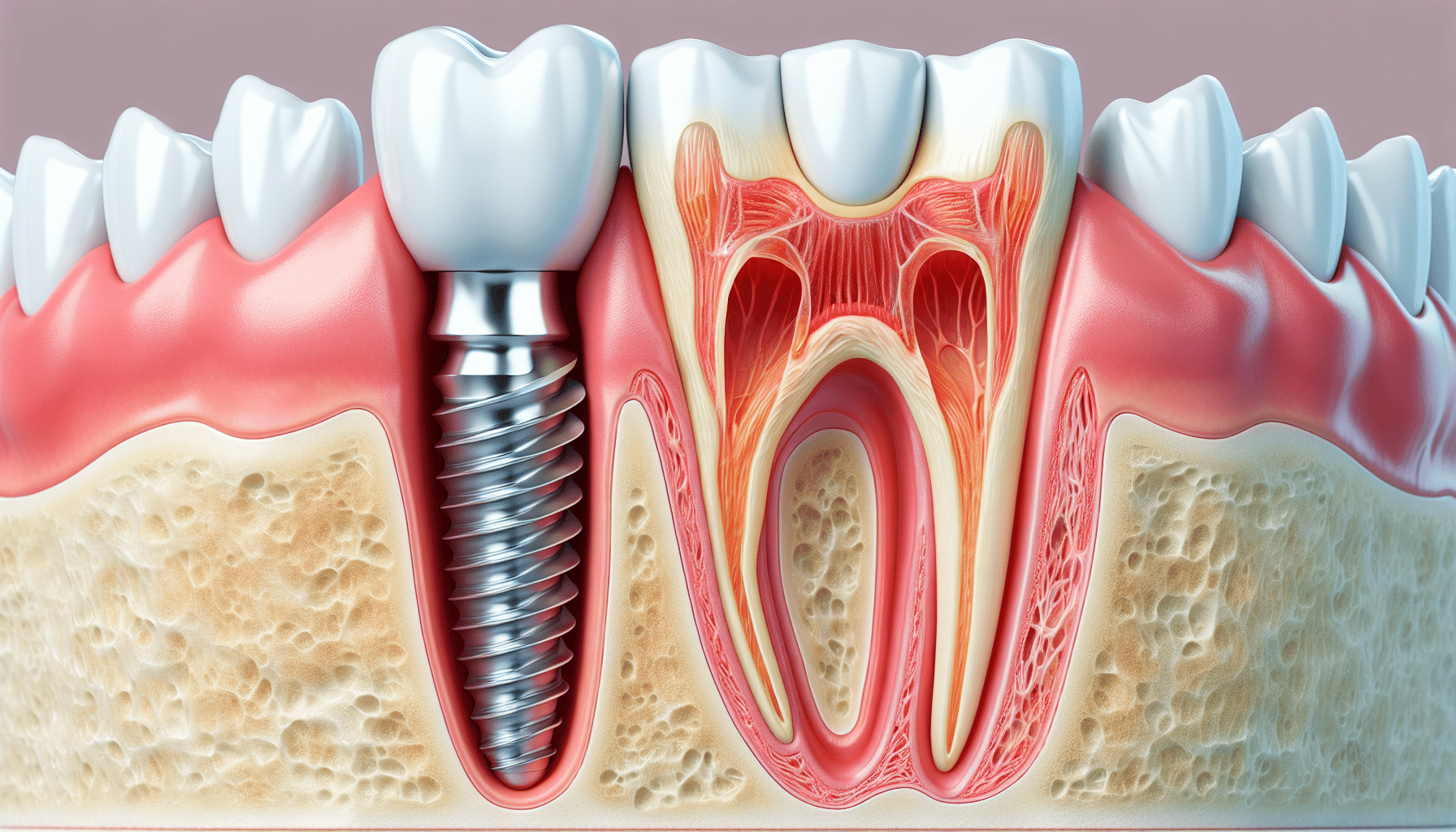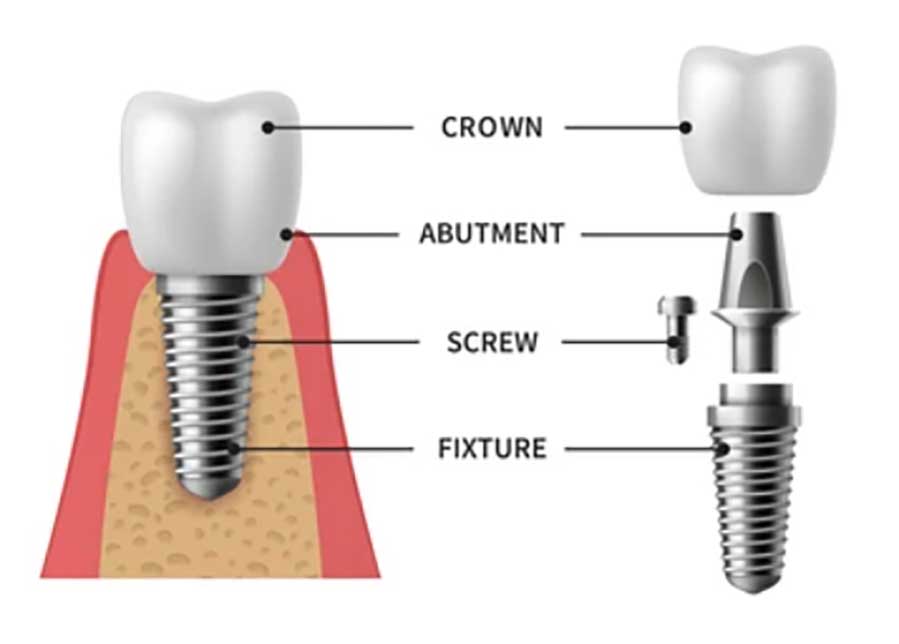Dentists Condit OH Dental Implants: Options, Costs, and Care
Dental implants have emerged as a popular selection for individuals looking for a long-term solution to tooth loss. One important side of understanding dental implants includes their effect on adjacent teeth. This is especially necessary for making certain the health and longevity of the entire dental structure.
When a dental implant is positioned, it mimics the perform of a natural tooth root. By doing so, it helps keep the integrity of the surrounding bone structure. Natural teeth rely on a balanced, interconnected system for support, and dental implants can contribute positively to that dynamic. The stability supplied by the implant allows for better distribution of chunk forces, which may prevent undue stress on adjacent teeth.
Johnstown Dental Columbus OH Dental Implants for Seniors: Considerations and Benefits
In cases where a tooth is missing, the neighboring teeth might shift into the vacant house. This shifting can result in misalignment and various other complications. By inserting a dental implant, the chance of this shifting is reduced, as the implant acts as a placeholder that preserves the natural alignment of surrounding teeth. This preventive effect is essential for long-term oral health and function.
Another essential consideration is bone loss. When a tooth is misplaced, the jawbone within the area can begin to deteriorate due to an absence of stimulation. Dental implants help prevent this bone loss by providing the required stimulation to the jawbone, very like a natural tooth root would. This preservation of bone not solely supports the implant itself but also contributes to the stability of adjacent teeth.
The kind of material used in dental implants, typically titanium, has a novel property of osseointegration, that means it fuses with the bone over time. This integration supplies a sturdy basis for the artificial tooth while guaranteeing that the implant doesn’t negatively affect surrounding structures. As the implant integrates, it creates an environment that contributes positively to the health of the adjacent teeth.

Regular dental check-ups play an essential position in monitoring the impression of dental implants on adjacent teeth. Professional assessments can help determine any points that will come up, guaranteeing immediate therapy and sustaining the health of the entire dental arch. These evaluations may embody X-rays to verify for bone density and the general condition of the implant and surrounding teeth.
Dentist Columbus OH Types of Dental Implants
Oral hygiene practices are important for people with dental implants. Proper brushing and flossing habits not solely contribute to the longevity of the implant but also make sure that adjacent teeth stay healthy. Food particles and plaque that accumulate around the implant could cause problems, together with peri-implantitis, an inflammatory condition that can have an result on surrounding teeth and tissues.
The positioning of dental implants can affect the health of adjacent teeth. If an implant is placed at an angle or not properly aligned, it could lead to elevated pressure on neighboring teeth. This misalignment could trigger wear and tear on adjacent enamel, potentially resulting in cavities or other dental points. Therefore, the talent and expertise of the dentist performing the implant procedure are paramount in achieving a profitable outcome.
In some cases, extra procedures could additionally be needed to prepare the encircling space for an implant. Bone grafting or sinus lifts might help create a better environment for the implant. While these procedures are geared toward enhancing the location for the implant, they also serve to guard the health of adjacent teeth by creating a more steady foundation.
Family Dental Clinic Condit OH Understanding the Cost of Dental Implants (2024 Edition)

As dental expertise evolves, advancements in implant techniques result in better outcomes. Improved imaging strategies and computer-aided design allow for more precise placements that decrease risk to adjacent teeth. With these developments, the likelihood of issues that would come up from improperly placed implants diminishes considerably.
Post-operative care additionally performs a crucial role in making certain that adjacent teeth remain unaffected. Patients must adhere to the dentist's directions regarding food regimen, oral hygiene, and follow-up visits. Neglecting these guidelines may lead to complications that influence not only the implant but additionally the neighboring teeth.
Dentists Centerburg OH Single-Tooth Implants: Everything You Need to Know
In conclusion, dental implants, when placed correctly and cared for properly, have the potential to enhance the health of adjacent teeth rather than detract from it. They maintain alignment, stimulate bone development, and supply a safe basis that supports the entire dental structure. Understanding how dental implants affect adjacent teeth emphasizes their importance as a long-term tooth replacement solution. With continuous advancements in expertise and strategies, the combination of dental implants into restorative dentistry is changing into increasingly successful, ensuring healthy and functional smiles for years to come.

- Dental implants prevent adjacent teeth from shifting into the hole created by a missing tooth, helping to take care of correct alignment in the mouth.
- The rebuilding of the jawbone by way of an implant can stimulate surrounding teeth and keep them healthy by offering essential bone density that may otherwise diminish.
- Adjacent teeth benefit from the stabilization that dental implants provide, decreasing the chance of damage and tear from misalignment during chewing.
- Implants can shield adjacent teeth by appearing as a framework, which may distribute chunk forces evenly throughout the dental arch instead of putting undue stress on neighboring teeth.
- When placed appropriately, dental implants decrease the chance of gum disease which might have an effect on adjacent teeth by maintaining a clean and healthy gum line.
- The presence of an implant can facilitate an improved oral hygiene routine, as it eliminates the need for bridgework that might trap food particles around adjacent teeth.
- Regular dental check-ups can reveal how well the implant integrates with surrounding structures, ensuring ongoing health for adjacent teeth.
- Implants can prevent the natural means of bone resorption that occurs after tooth loss, positively impacting the steadiness and longevity of adjacent teeth.
- The use of dental implants may scale back the necessity for more invasive procedures in the future, providing a long-term solution that maintains the structure of the entire dental arch.
- Successful integration of an implant into the dental arch enhances overall oral function, often resulting in improved confidence and oral health for adjacent teeth.undefinedHow do dental implants affect adjacent teeth?
What impact do dental implants have on the alignment of adjacent teeth?
Dental implants typically prevent the shifting of adjacent teeth, serving to to hold up correct alignment. This stability can scale back the danger of creating bite issues over time.
Can dental implants cause damage over at this website to close by teeth?
When positioned appropriately by a professional professional, dental implants should not damage adjacent teeth - Dentist Office Johnstown OH. However, improper placement or insufficient planning might lead to issues
Johnstown Dental Condit OH The Benefits of Dental Implants: Why Choose Them?
Do dental implants require any special care regarding adjacent teeth?
Maintaining good oral hygiene is essential. Surrounding teeth should be brushed and flossed regularly, and routine dental check-ups will help ensure that each the implants and adjacent teeth remain healthy.

Will dental implants impact the health of my surrounding teeth?
Dental implants can improve the health of surrounding teeth by distributing chew forces evenly, lowering put on and tear. Additionally, they'll prevent bone loss in the jaw, which might affect adjacent teeth.
Dental Implants Sunbury OH Dental Implants: Options, Costs, and Care
Are there any long-term results of dental implants on close by teeth?
Long-term, dental implants might help preserve the health of adjacent teeth by stopping shifting and potential gum points, finally contributing to better oral health overall. - Dentists Pataskala OH
Can gum problems arise around adjacent teeth this after getting implants?
If correct dental care is neglected, gum issues might develop around each the implants and adjacent teeth. Following post-operative care directions is essential to reduce these risks.
Mono Dental Implants Columbus OH Dental Implant Surgery
How do dental implants compare to bridges when it comes to adjacent teeth?
Dental implants are usually beneficial as they don’t require alteration of adjacent teeth, unlike bridges, which necessitate reshaping of nearby teeth for help. (Dental Care Associate Columbus OH)
Can I still get cavities in adjacent teeth if I even have dental implants?
Yes, adjacent teeth can nonetheless develop cavities if not correctly cared for. Dental implants themselves can not get cavities, however they require vigilant hygiene practices to guard surrounding natural teeth.
What is the success rate Discover More Here of dental implants in relation to surrounding teeth?
The success rate of dental implants is excessive, nevertheless it largely depends on the quality of the procedure and ongoing care. Well-maintained implants often lead to better outcomes for adjacent teeth as well.